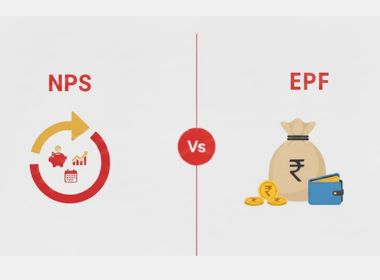Search Suggestions
- Gold Loan
- Money Transfer
- Mutual Funds

Why is it Important to Disclose Pre-Existing Diseases to Your Insurer?
In today's world, everyone strives to maintain good health and well-being. However, unforeseen medical emergencies or healthcare needs can arise at any time. The increasing cost of medical treatments should not prevent us from seeking the best possible care for ourselves and our loved ones. Providing top-quality medical services can place a significant financial burden on our lives, affecting our overall quality of life. To safeguard against such situations, health insurance policies play a crucial role. By obtaining different types of health insurance policies, we pay a certain premium to an insurance company, which guarantees coverage for our hospitalization and treatment expenses up to a predetermined limit.
Health insurance plans for your family provide comprehensive coverage for medical expenses and ensure the well-being of your loved ones. However, health insurance policies often contain a few crucial clauses to comprehend. One such clause may relate to pre-existing diseases (PED).
What are Pre-Existing Diseases?
In recent times, prevalent pre-existing health conditions include diseases such as diabetes, high blood pressure, high BMI, cancer, and more. Pre-existing diseases refer to medical conditions that an individual already has when purchasing a new health insurance policy. The Insurance Regulatory and Development Authority of India (IRDAI) defines pre-existing diseases as any condition, ailment, injury, or disease that a physician has diagnosed within 48 months before the policy's effective date or reinstatement.
This definition also includes any medical advice or treatment recommended by a physician or received by the insured within 48 months before the policy's effective date or reinstatement. In essence, it encompasses any known medical condition or ongoing treatment the insured had before obtaining the health insurance policy.
How Does Pre-existing Disease Impact Your Health Insurance Coverage?
Pre-existing diseases can significantly impact your health insurance coverage. Insurance companies often impose certain restrictions and clauses when covering pre-existing diseases. These clauses are designed to protect the insurance company from incurring excessive costs for conditions already existing during policy purchase or reinstatement. Generally, pre-existing disease health insurance policies have a waiting period. During this waiting period, which can range from months to years, the policyholder may be unable to claim any expenses related to their pre-existing condition. This means that the policyholder will have to bear any treatment, hospitalization, or medication costs for the pre-existing disease.
Moreover, after the waiting period, the coverage for pre-existing diseases may be subject to specific terms and conditions. The insurance company may impose sub-limits, exclusions, or higher premiums for such conditions. Certain chronic or severe pre-existing conditions may be permanently excluded from coverage. Before purchasing health insurance, it is crucial to thoroughly understand the policy's terms and conditions related to pre-existing diseases.
Why is it Important to Declare a Pre-Existing Disease?
Many people often make the mistake of not disclosing their pre-existing diseases when purchasing a new health insurance policy. However, it is essential to understand the importance of disclosing this information accurately. When applying for a health insurance policy, the insurance company relies on the information provided in the applicant's proposal form. The details provided in the form are truthful, and the insurance company accepts them in good faith. By doing so, you ensure transparency and maintain the integrity of the insurance contract. Failing to disclose pre-existing diseases can have serious consequences. If you withhold such information, the insurance company may deny your claim or even cancel your policy in case of a medical emergency or treatment related to the undisclosed condition.
How Does Health Insurance Provide Coverage for Pre-existing Illnesses?
Health insurance plans have a waiting period, typically ranging from 1 to 4 years. During this time, the policy does not cover any medical complications or emergencies arising from pre-existing conditions. However, once the waiting period is over, the policy provides full compensation for healthcare expenses related to these conditions, subject to the terms and conditions of the insurance policy.
Notifying your insurance provider allows you to receive reimbursement for expenses related to pre-existing diseases after the waiting period. Health insurance is essential and can now be easily purchased online. You can compare the best health insurance companies, and their plans, check cashless hospital networks, calculate premiums, and even renew existing policies with just a few clicks.
At Muthoot Finance, we offer customers tailored insurance plans based on their needs and risk profile. Our Insurance Broking Company has a team of professional and qualified experts who assist in selecting the best insurance options, like maternity insurance or health insurance for parents. Contact us to get the best health insurance plans for you and your family.
Suggested Read: TYPES OF INSURANCE PROVIDED BY MUTHOOT FINANCE
Suggested Read: WHAT TO KNOW ABOUT GROUP HEALTH MEDICAL INSURANCE PLANS
- Insurance
- Group Insurance
- Health Insurance
- Home Insurance
- Vehicle Insurance
- Life Insurance
- Travel Insurance
- Shop Insurance
CATEGORIES
OUR SERVICES
-

Credit Score
-

Gold Loan
-

Personal Loan
-

Cibil Score
-

Vehicle Loan
-

Small Business Loan
-

Money Transfer
-

Insurance
-

Mutual Funds
-

SME Loan
-

Corporate Loan
-

NCD
-

PAN Card
-

NPS
-

Custom Offers
-

Digital & Cashless
-

Milligram Rewards
-

Bank Mapping
-

Housing Finance
-

#Big Business Loan
-

#Gold Loan Mela
-

#Kholiye Khushiyon Ki Tijori
-

#Gold Loan At Home
-

#Sunherisoch
RECENT POSTS

Understanding Gold Bees: How it Works, Net Asset Value, Returns and More
Know More
Multi Cap and Flexi Cap Mutual Funds: How Are They Different?
Know More
Online Personal Loan vs. Offline Personal Loan - Which Is Better for You?
Know More
10 Tips to Improve Chances of Personal Loan Approval
Know More
10 Factors Affecting Mutual Fund Performance Explained Simply
Know More
10 Key Factors That Affect Your Personal Loan EMI
Know More
What Is Fine Gold? Meaning, Purity (999), Uses & Price Explained
Know More
Gold vs Silver: Which is Better as an Investment?
Know More
Why Gold Is a Safe Haven Asset: Meaning, Benefits & Real Examples
Know More
Gold or Bitcoin - Best Investment for Value Retention
Know MoreFIN SHORTS

The Best 7 SIF Funds of 2026: A Better Way to Invest
Know More
Gold Price Hits ₹1,40,000: How It Impacts Gold Loan Amounts
Know More
How to Check Loan Number: Step-by-Step Process
Know More
How to Open an SIP Account: Online and Offline Process
Know More
How Do I Apply for MSME Certification Online in India?
Know More
7 Important Reasons to Choose Hallmark Gold When Buying Jewellery
Know More
What Are Co-Pay and Deductibles in Insurance Policies?
Know More
Should You Take a Loan Against Your Mutual Fund or SIP?
Know More
Top 5 Best Mid-Cap Mutual Funds to Watch in 2026
Know More
Are Personal Loans Right for Retirees? Key Points to Consider
Know More
What Happens to a Personal Loan After the Borrower Dies?
Know More
Best Loan Choices for Credit Scores of 580 and Below
Know More- South +91 99469 01212
- North 1800 313 1212





